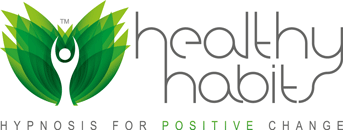HOW YOUR CHILDHOOD MIGHT BE AFFECTING YOUR LOVE LIFE TODAY!
- Oct 9, 2023
- 4 min read
Updated: Feb 27, 2024

Relationships Are Not Always Easy
A healthy and loving relationship with a partner is what most of us really want, but the journey to being really happy and thriving in a relationship can be tricky for many of us! Often what happened when we were young can still affect our happiness in our adult relationships.
In this blog, I’ll talk about some ways your childhood might be stopping you from being happy in love today. And I’ll share the steps we all can take to process and heal from this.
How We Project Our Past Onto a Current Relationship
In the different stages of a relationship, we often project our unresolved childhood issues onto our partners. For example, we might unconsciously seek validation or try to heal our childhood wounds through our relationship. This underlying, largely unconscious driving force can lead to misunderstandings, conflicts, and unmet expectations.
We can get really frustrated and triggered when our needs are not met by our partner! This is when many relationships get challenging and is the stage of a relationship that I call the ‘power struggle’ stage. This is when we get very disillusioned in our relationship, especially if we’re not aware of what’s going on under the surface of our emotions.
The Alternative to the Power Struggle Stage: Developing a Conscious Relationship
There is another way though, and that’s to cultivate a conscious relationship. This means that each partner takes responsibility for healing their own past wounds and taking care of themselves in this way.
In a conscious relationship each person knows that it is their own ‘job’ to make themselves happy and to nurture both themselves, their partner AND the relationship. In order to achieve this balance in a relationship, we first need to become aware of what might be blocking us.
Some Ways Your Childhood Could Be Holding You Back
✅ Parental Wounds
Our first point of contact with love is usually through our parents or caregivers. If our childhood experiences were marked by neglect, abuse, or inconsistent love, it can leave deep emotional wounds that affect our adult relationships. These wounds can manifest as trust issues, fear of abandonment, or difficulty in forming healthy attachments. Recognizing these wounds is the first step in healing them.
✅ The Effect of Not Feeling "Enough" on Self-Esteem
Childhood experiences that make us feel inadequate or unworthy can severely damage our self-esteem. When we don't believe in our own worth, it's challenging to attract and maintain a healthy, loving relationship. Low self-esteem can lead us to settle for less than we deserve or tolerate unhealthy behaviors from a partner.
✅ How Low Self-Esteem Affects Our Expectations in Adult Relationships
Low self-esteem not only affects how we view ourselves but also how we perceive what we deserve in a relationship. We might find ourselves accepting less love, respect, or kindness than we should, simply because we don't believe we deserve more. It's essential to raise our self-esteem and set healthy boundaries to break this cycle.
✅ Limiting Beliefs About Relationships
Our childhood experiences can shape our beliefs about love and relationships. If we witnessed unhealthy relationships or experienced toxic dynamics, we may carry these beliefs into adulthood. These limiting beliefs can hinder our ability to form and maintain healthy, fulfilling relationships. Identifying and challenging these beliefs is crucial for personal growth.
✅ Accepting Unworthy Treatment
When we don't feel worthy of love, we may tolerate mistreatment or stay in unhealthy relationships far longer than we should. We may cling to the hope that someone will validate our worth, even if it means enduring pain and unhappiness. It's essential to recognize when we're settling for less and have the courage to walk away from toxic relationships.
How to Heal Childhood Wounds & Move On
We can process and heal our childhoods in order to see the past as the past and be able to cultivate healthy relationships (first our own relationship with self and then external relationships with others).
Steps to Heal Old Wounds in Order to be Happier Now
Self-Awareness: The first step towards healing is self-awareness. Reflect on your childhood experiences and how they might be affecting your current relationships. Recognize any patterns or triggers.
Set Boundaries: Learn to set healthy boundaries in your relationships. This includes asserting your needs, expressing your feelings, and recognizing when a relationship is no longer serving your well-being.
Self-Love and Self-Care: Cultivate self-love and practice self-care. Building self-esteem involves treating yourself with kindness, acknowledging your worth, and investing in your own happiness.
Communication: Open and honest communication with your partner is crucial. Share your feelings, fears, and aspirations. Together, you can work through challenges and grow as a couple.
Seek Professional Help: A therapist or coach can provide valuable guidance and support in addressing childhood wounds, self-esteem issues, and limiting beliefs. They can help you develop healthy coping strategies.
🦋 To sum up, while our childhood experiences can impact our adult relationships, they don't have to define them. By becoming aware and addressing childhood wounds, building self-esteem, challenging limiting beliefs, and practicing self-love, it is possible to create the loving, fulfilling relationships we deserve.
Remember, it's never too late to do this inner work to heal and find happiness in love. Some people never do the work and experience the same problems and patterns again and again throughout their lives. So whatever age you are just know that you can tackle this and heal.
In my own work I utilize Rapid Transformational Therapy (RTT) to help people process and heal from childhood wounds. For more info about RTT go here! 🌞 ✅
RTT is included in my Healthy Relationship Formula Program. Read more here!







































































Comments